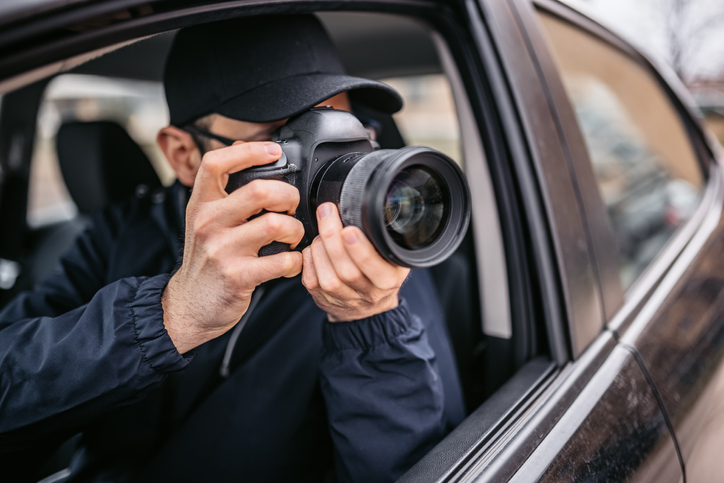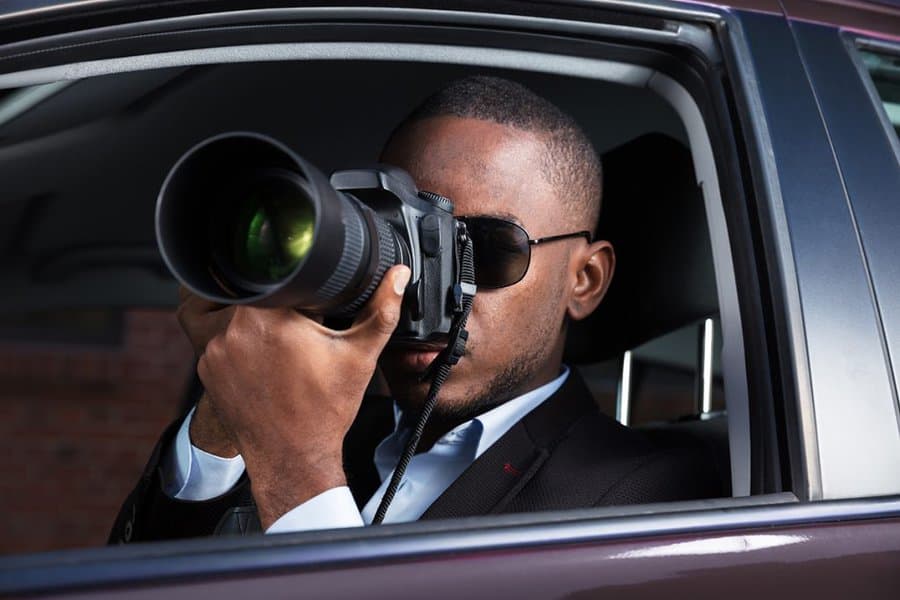Private Detective: Reliable and Confidential Investigator Providers
Private Detective: Reliable and Confidential Investigator Providers
Blog Article
A Day in the Life of a Private Investigator: Incentives and difficulties
Getting started on a day as a personal investigator exposes a world where careful planning meets unforeseeable circumstances. From the very start, very early morning briefings set the stage for a day that balances the thrill of monitoring with the necessity for discernment. It's the intricate dancing of gathering evidence and managing customer assumptions that really evaluates one's skills.
Morning Rundown
The morning briefing is a keystone of a private investigator's day, setting the phase for the jobs in advance. This vital point entails a thorough testimonial of continuous instances, assignment of duties, and strategic preparation. Commonly held at the agency's workplace or by means of a safe and secure online conference, the rundown makes certain that all staff member are lined up and educated.
Throughout this session, detectives analyze situation files, analyze overnight developments, and upgrade each various other on progress. Key info such as suspicious places, new leads, and potential obstacles are shared. The lead investigator frequently designates details roles, making certain that each team member recognizes their duties for the day. This precise sychronisation is essential for preserving operational efficiency and accomplishing successful end results.
It is additionally a moment to discuss lawful factors to consider and ensure compliance with appropriate legislations and guidelines. By the end of the briefing, each private investigator is equipped with a clear strategy of action, all set to tackle the day's difficulties with an educated, natural technique.
Monitoring Methods
Grasping security methods is important for any exclusive detective, as these abilities allow the discreet monitoring and event of important info. Reliable surveillance needs a keen understanding of human actions, the capability to blend right into numerous environments, and the use of advanced technology. Whether tailing a subject walking or in a car, preserving an inconspicuous visibility is vital.

Technical devices can substantially improve surveillance initiatives (Best Private Investigator). General practitioner tracking tools, night-vision equipment, and advanced recording devices enable for comprehensive monitoring under different conditions. Nonetheless, reliance on technology should be balanced with human instinct and adaptability
Another important aspect is pre-surveillance preparation. This includes comprehensive research study on the subject and the atmosphere, enabling the investigator to prepare for prospective difficulties and strategy backups. Mastery of these methods makes sure that a personal detective can successfully collect information while staying unnoticed, thus fulfilling their investigatory purposes with expertise and precision.

Gathering Evidence
Gathering evidence stands for a foundation of an exclusive detective's responsibilities, requiring careful attention to detail and unwavering adherence to lawful requirements. The process entails a mix of empirical abilities, analytical thinking, and the ability to run discreetly in different settings. Whether it is finding witnesses, recording photographic evidence, or accumulating electronic impacts, each action has to be executed with precision to make certain the honesty and admissibility of the proof.
Personal investigators frequently start by establishing an extensive approach customized to the details needs of the situation. This entails identifying the sort of proof required and the optimal techniques to get it, whether via straight monitoring, meetings, or technology-based tools. Making use of innovative equipment, such as high-resolution video cameras, audio recorders, and sophisticated software for information evaluation, boosts the effectiveness of proof collection.
Private private investigators must navigate privacy legislations, make sure chain-of-custody methods are purely adhered to, and continue to be objective in their documentation. The function of a private investigator demands a high degree of expertise, watchfulness, and stability.
Customer Communications
Engaging with customers is an essential aspect of a private detective's day-to-day obligations, calling for a blend of professionalism and reliability, empathy, and effective interaction abilities. Each client interaction starts with an extensive understanding of their demands, concerns, and goals. Developing depend on is paramount; customers should feel great that their sensitive details will certainly be taken care of with discretion which their instance will be gone after diligently.
During first assessments, exclusive detectives listen attentively to customers, asking essential concerns to Surveillance gather crucial information. This process not just helps in forming the examination's method but also in handling customer expectations. Clear, concise communication is important to make sure that customers are conscious of the examination's scope, potential outcomes, and limitations.
Maintaining routine updates is one more important part of client communications. Personal investigators provide report card and discuss any kind of new growths, guaranteeing clients are maintained informed and engaged throughout the examination. This openness helps in cultivating a strong client-investigator relationship and emphasizes the private investigator's dedication to the situation.
Moreover, handling psychological clients with sensitivity is a crucial ability. Many clients are taking care of demanding scenarios, and showing compassion can substantially ease their anxiousness, making the investigatory procedure much less intimidating for them.

Case Documentation
Effective client interactions lay the groundwork for detailed case documentation, a foundation of a private detective's job. Exact and comprehensive documents are important for confirming searchings for and ensuring the stability of the examination. Best Private Investigator. This procedure begins with meticulously keeping in mind first customer meetings, catching every important detail, from the customer's purposes to any kind of provided proof or leads
Throughout the examination, private investigators should carefully document their tasks, interactions, and observations. This consists of date-stamping all entrances, taping security notes, and maintaining photographs or video clip footage in a structured fashion. Such precision not only help in maintaining a clear investigatory trajectory but likewise supports legal compliance and responsibility.
In addition, situation paperwork works as an important reference point throughout the analysis phase. By systematically organizing data, detectives can identify patterns, affirm witness statements, and draw informed conclusions. This thorough record-keeping is vital when preparing reports for customers or presenting findings in a lawful context, where precision and clearness are paramount.
Essentially, durable situation documentation underpins the reputation of a personal investigator's work, guaranteeing that every piece of information is verifiable and that the investigation stays defensible and clear throughout.
Conclusion
In summation, the occupation of a personal investigator incorporates a diverse variety of activities, each presenting distinct obstacles and benefits. The day starts with tactical planning and continues with the execution of security and evidence collection, all while maintaining efficient client interaction and careful documents. The equilibrium of investigative thrill and the requirement for rigorous lawful compliance emphasizes the complexity and satisfaction inherent in this duty. The commitment to discovering fact and fixing situations stays vital.
The early morning rundown is a keystone of an exclusive detective's day, setting the stage for the tasks ahead.Engaging with clients is a vital facet of a personal investigator's daily obligations, needing a mix of professionalism and reliability, empathy, and effective interaction skills.Throughout preliminary consultations, private detectives listen attentively to clients, asking relevant concerns to gather vital details. Personal detectives give development reports and discuss any kind of new advancements, ensuring clients are kept informed and involved throughout the investigation.Effective customer interactions lay the foundation for detailed case documentation, a cornerstone of a private investigator's job.
Report this page